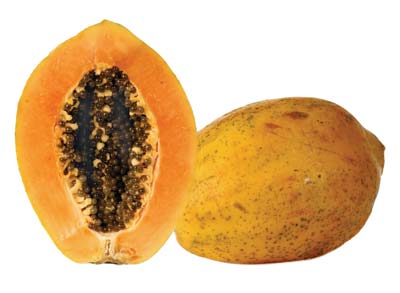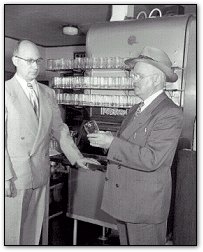In one of the most bizarre marketing decisions – ever, even for Australia – Kraft Foods decided to name its second generation Vegemite the iSnack 2.0.
I first heard the term Vegemite near the beginning of the worst decade of music ever, in the 1981 song, Down Under, by Men at Work.???
 Vegemite is made from leftover brewers’ yeast extract, a by-product of beer manufacturing, and various vegetable and spice additives. The taste may be described as salty, slightly bitter, and malty – somewhat similar to the taste of beef bouillon. The texture is smooth and sticky, much like peanut butter.
Vegemite is made from leftover brewers’ yeast extract, a by-product of beer manufacturing, and various vegetable and spice additives. The taste may be described as salty, slightly bitter, and malty – somewhat similar to the taste of beef bouillon. The texture is smooth and sticky, much like peanut butter.
Helen Razer, a Melbourne writer, says in today’s (tomorrow’s) The Age, that the chief element in Vegemite’s new product is cream cheese. A secondary ingredient appears to be abject failure. No one likes the name of this new yeast product, except at least six Harvard MBAs at Kraft Foods who adore it.
The winning name was announced during the telecast of the AFL grand final. In an effort ”to align the new product with a younger market – and the ‘cool’ credentials of Apple’s iPod and iPhone” Kraft chose iSnack 2.0 from a field of 48,000.
 This raises many questions. Chief among them is how very terrible were the other 47,999 competition submissions that Kraft was left with iSnack 2.0?
This raises many questions. Chief among them is how very terrible were the other 47,999 competition submissions that Kraft was left with iSnack 2.0?
Razer says the label is every bit as hip as a polka convention and every bit as convincingly ”now” as parachute pants.
Sounds like the wardrobe for a 1981 video shoot.
Razer also says, on Monday, the global noticeboard Twitter was jammed with disgust. Comments that included ”I said do you speaka my language? She just smiled and gave me an iSnack 2.0 sandwich” and ”What’s the matter, was the name Crap Paste already trademarked?”

 William Hodgins, 81, died of a ruptured stomach
William Hodgins, 81, died of a ruptured stomach.jpg)
 The West Australian Department of Health issued a statement on Tuesday saying seven cases of salmonella poisoning linked to the tropical fruit had been uncovered over the past six weeks.
The West Australian Department of Health issued a statement on Tuesday saying seven cases of salmonella poisoning linked to the tropical fruit had been uncovered over the past six weeks..jpg) But Virgin Blue served the food – they are responsible.
But Virgin Blue served the food – they are responsible. Today he was sentenced to six years in prison.
Today he was sentenced to six years in prison. The Australian reports tomorrow morning
The Australian reports tomorrow morning.jpg) Virgin Blue today in a statement an outside contractor may have been to blame, adding,
Virgin Blue today in a statement an outside contractor may have been to blame, adding, During my year of study in New Zealand I plan on hopping across the ditch to Australia. Although my main goal is to bump into Mr. G (from Summer Heights High, see right), I will most inevitably have a meal out.
During my year of study in New Zealand I plan on hopping across the ditch to Australia. Although my main goal is to bump into Mr. G (from Summer Heights High, see right), I will most inevitably have a meal out.  She has acquired spastic quadriplegia and a profound intellectual disability.
She has acquired spastic quadriplegia and a profound intellectual disability..jpg)
 The newspaper concludes that 40 per cent of all restaurants, takeaways and other food businesses in NSW were caught breaching one or more of the critical food handling practices when first visited by an inspector.
The newspaper concludes that 40 per cent of all restaurants, takeaways and other food businesses in NSW were caught breaching one or more of the critical food handling practices when first visited by an inspector..jpg) Journalist Mathew Moore does clearly state that whatever the limitations, “making this information public we can now expect improvements in standards that transparency and public scrutiny of government information can bring. The Food Authority deserves praise for releasing this information and giving the public far more data than it can get in any other state. It’s an important addition to the name and shame list … With its website and release of the statewide data, NSW has gone further than any other state.
Journalist Mathew Moore does clearly state that whatever the limitations, “making this information public we can now expect improvements in standards that transparency and public scrutiny of government information can bring. The Food Authority deserves praise for releasing this information and giving the public far more data than it can get in any other state. It’s an important addition to the name and shame list … With its website and release of the statewide data, NSW has gone further than any other state.